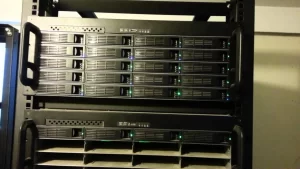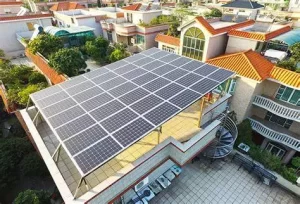Key Features and Advantages of Solar Electricity Battery Storage
In the quest for sustainable and reliable energy sources, solar electricity has gained significant traction. Coupled with the development of battery storage technology, it offers a promising solution to meet our energy needs. This article explores the key features and advantages of solar electricity battery storage.
One of the prominent features of solar electricity battery storage is its ability to store excess energy generated during peak sunlight hours. Solar panels produce the most electricity when the sun is at its strongest, but our energy consumption patterns often don’t align with this peak production. Batteries come to the rescue by storing this surplus power, allowing us to use it when the sun isn’t shining or our energy demand is higher.
This feature leads to a significant advantage – increased energy independence. Homes and businesses equipped with solar and battery storage systems are less reliant on the traditional power grid. They can generate and store their own electricity, reducing vulnerability to power outages and fluctuations in grid supply. For example, a rural household with a solar panel array and battery storage can continue to function normally even during grid disruptions, providing essential services like lighting and refrigeration.
Another key feature is the flexibility it offers in energy usage. Users can control when and how they draw power from the stored energy, optimizing consumption based on their specific needs and electricity rates. During off-peak hours when electricity prices are low, the battery can be charged, and the stored energy can be utilized during peak hours when prices are high, resulting in potential cost savings.

The environmental benefits of solar electricity battery storage are substantial. By relying on clean, renewable solar energy and reducing reliance on fossil fuel-based power generation, it helps lower greenhouse gas emissions and mitigates the negative impact on the environment. This contributes to the global effort to combat climate change and create a more sustainable future.
In addition, solar battery storage systems can be scaled to meet different energy requirements. From small-scale residential setups to large commercial and industrial applications, the technology is adaptable. This scalability makes it accessible to a wide range of users, from individual homeowners to large energy consumers.
Moreover, advancements in battery technology have improved the performance and longevity of solar electricity storage. Modern batteries have higher energy densities, longer cycle lives, and faster charging capabilities. This means they can store more energy, withstand more charge-discharge cycles, and recharge more quickly, enhancing the overall efficiency and reliability of the system.
The integration of solar electricity battery storage with smart energy management systems also adds to its appeal. These systems can monitor energy production, consumption, and battery status in real-time, allowing for intelligent control and optimization of the energy flow. This not only maximizes the use of stored energy but also helps in identifying and addressing any potential issues promptly.
From an economic perspective, while the initial investment in solar and battery storage systems can be substantial, the long-term savings in electricity bills and the potential increase in property value can outweigh the upfront costs. Additionally, as technology continues to advance and economies of scale come into play, the prices of solar panels and batteries are expected to decline further, making the systems more economically viable for a broader range of users.
In conclusion, the key features of solar electricity battery storage, such as energy storage during peak production, flexibility in usage, scalability, and technological advancements, along with its numerous advantages including energy independence, environmental friendliness, and economic benefits, make it a compelling option in the evolving energy landscape. As we continue to strive for a cleaner and more sustainable energy future, solar electricity battery storage is likely to play an increasingly crucial role in shaping our energy consumption patterns and reducing our carbon footprint.
Contact us
- Email:[email protected]
- Tel: +86 13651638099
- Address: 333 Fengcun Road, Fengxian District, Shanghai
Get A Quote Now!
Related product links are available directly
Site storage products:Site storage products 归档 – (energystoragecontainer.com)
Lithium Battery:Lithium Battery 归档 – (energystoragecontainer.com)
Read more

Unveiling Photovoltaic+Energy Storage: Four Major Application Scenarios Leading the Future of Energy
In this way, the energy landscape is evolving, and one of the most thrilling developments in renewables is the integration of photovoltaics energy storage.

From Theory to Practice: Four Methods for Estimating Photovoltaic Power Generation
Photovoltaic power generation has become an essential part of modern energy solutions, particularly in home solar systems and distributed power applications

Rack-Mounted Lithium Iron Batteries: Creating Efficient and Reliable Energy Storage Solutions
When it comes to modern energy solutions, rack-mounted lithium iron batteries are taking center stage in a variety of industries. Whether you’re powering data centers, stabilizing energy for households, or keeping critical systems online at 5G base stations, these batteries have become the unsung heroes of our electrified world.

Late Night Energy Saving Tips: How to Maximize Electricity Savings During Off-Peak Hours
With rising energy costs, homeowners are increasingly exploring innovative ways to save on their electricity bills. One effective approach is utilizing off-peak hours—times when electricity rates are significantly lower due to reduced demand.
